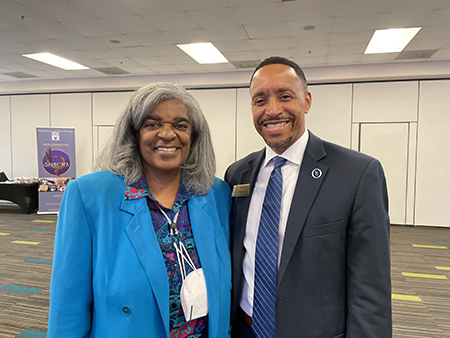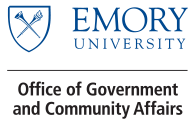| Moving past Crossover Day
On March 15, the Georgia General Assembly passed a key milestone, Crossover Day on Legislative Day 28. This is the deadline for a bill originating in one chamber to pass to be eligible in the other chamber. Members in the two chambers debated and voted on over 100 bills and resolutions. The members worked late into the evening with the House adjourning shortly after 11:15pm. With the completion of Legislative Day 30 on March 17, there are only 10 Legislative Days left this session. With Sine Die, the last day of session, quickly approaching on April 4, the work in committees and on the floors will increase as members push their priorities to the finish line. We anticipate a lot of action on healthcare and higher education bills. A complete overview will be provided at the conclusion of the 2022 Legislative Session.
Focus Shifts to the Fiscal Year 2023 Budget
On March 16, Governor Brian Kemp held a signing ceremony for the Amended Fiscal Year 2022 Budget. We commend the legislature and administration for moving quickly to pass this budget. Both chambers have now shifted their focus to the Fiscal Year 2023 Budget. While committee hearings are done, members continue to meet to work out differences between the three funding proposals by Governor Kemp, the House of Representatives and the Senate. Passing a balanced budget is the only constitutional duty the Georgia General Assembly has. They cannot adjourn Sine Die until a balanced budget is passed. With this in mind, there is a strong focus on working out the differences and sending this budget to Governor Kemp for his approval. A summary of key budget items that impact Emory University will be provided once the final version is passed.
Mental Health Parity Act
After Crossover Day, the Senate turned their attention to this year’s mental health and substance abuse omnibus legislation. House Bill 1013, the Mental Health Parity Act, addresses access to care, mental health and substance abuse parity for providers and patients, workforce initiatives, transparency and accountability as well as resources and tools for frontline responders and communities. The Senate Health and Human Services Committee is holding a series of subcommittee hearings to vet each section of the 77 page legislation before considering final action. On March 16, over 30 advocates, as well as several members from the Senate, held a press conference to highlight the importance of passing this legislation. The Senate will be making changes to House Bill 1013 so it will go back to the House for consideration before it can receive final passage.
Workforce Initiatives
The Administration, Georgia General Assembly members, states agencies and various stakeholders continue to explore workforce initiatives. This is a three-prong approach focused on funding, regulatory changes and legislative action. A key piece of this initiative received passage by the House and is eligible to be considered by the Senate: House Bill 150 creates the 27-member Georgia Council on Addressing Health Care Workforce Challenges. The membership includes representatives from healthcare, higher education, state agencies and pertinent trade associations. A representative from private colleges will be appointed by the Speaker of the House. We will continue to work with members and key stakeholders on this legislation, and other initiatives, to address the critical issue of workforce shortages at Emory and across the state. | 




